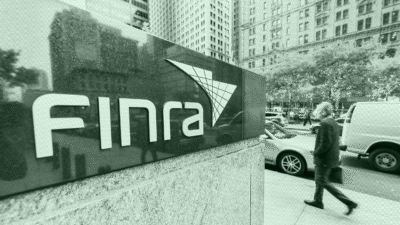Goldman’s $1T AI Problem
For all the money flooding into AI, it could tackle more pressing issues than teaching robots to flip burgers.
Sign up for market insights, wealth management practice essentials and industry updates.
Artificial intelligence may save the world (or destroy it, depending on who you ask), but first it’s gotta move out of its parents’ basement.
Big Tech and government programs are expected to dump $1 trillion into AI infrastructure in the coming years, including big splashes for new data centers, chip factories, and the power grids needed to make it all happen. But, beyond some reports of worker efficiency and automation, the returns on those investments have been slim to none, according to new research from Goldman Sachs.
For all the money flooding into Gen AI, you might expect it to tackle more pressing issues than teaching robots to flip burgers or participating in beauty pageants. “We estimate that the AI infrastructure buildout will cost over $1 trillion in the next several years alone,” said Goldman head of global equity research Jim Covello. “So, the crucial question is: What $1 trillion problem will AI solve?”
It AIn’t Happening
The main issue is that AI just isn’t that intelligent. In order to upend industries, the technology must be able to solve complex problems, which it isn’t built to do, Covello said in the report. For example, the internet was able to usher in low-cost solutions to disrupt high-cost ones, like Craigslist taking over classified ads in newspapers. AI is finding it much harder to live up to its revolutionary reputation:
- The study estimated that only a quarter of AI tasks will be cost-effective within the next decade, and that the technology will impact less than 5% of all tasks.
- Over that timespan, AI will increase US productivity by a factor of approximately 50 basis points and impact the national GDP growth by less than 1%.
Blue Chips: Of course, the stock market, or shall we say Nvidia, is eating up the hype after it briefly became the largest stock in the S&P 500. But that optimism may also be showing signs of faltering; the chipmaker lost over $550 billion in market cap over a three-day period last month. The report found there is still significant room for the AI theme to run, because, well… bubbles can take a long time to pop.
To be fair, other experts cited in the report were much rosier. There is massive potential for AI to ultimately generate returns beyond the current “picks and shovels” phase when a possible “killer application” could emerge and take over the world. The study noted the internet had such applications in its infancy. Until then, let’s hope the bubble fizzles rather than bursts.












